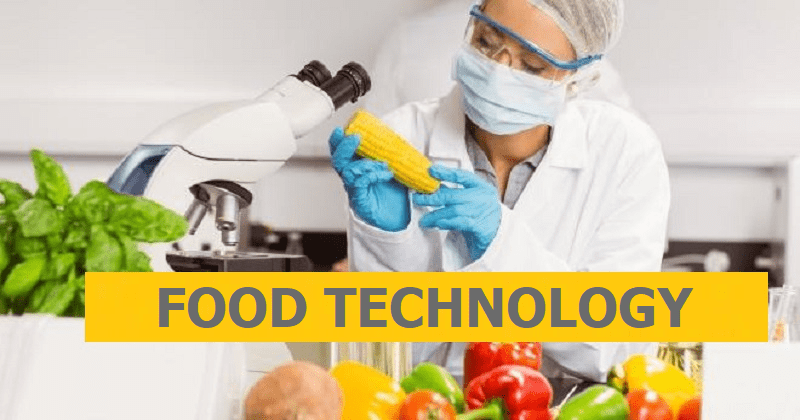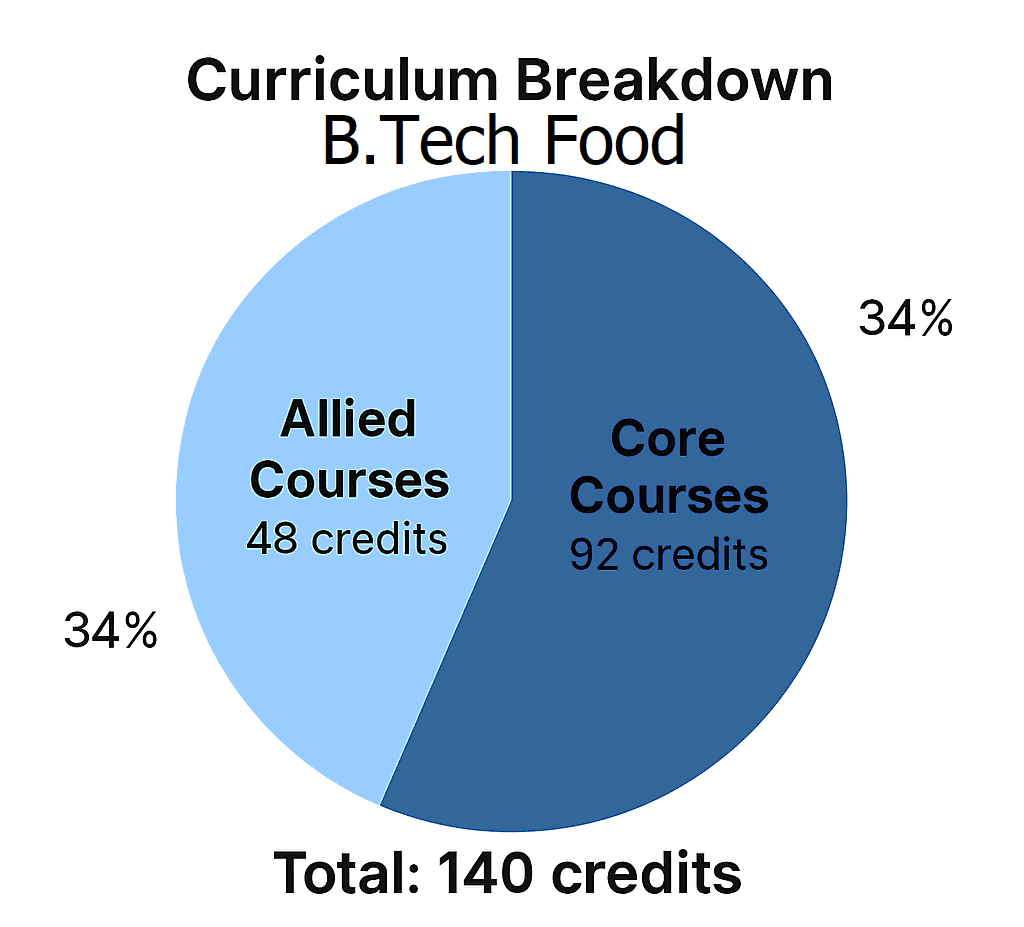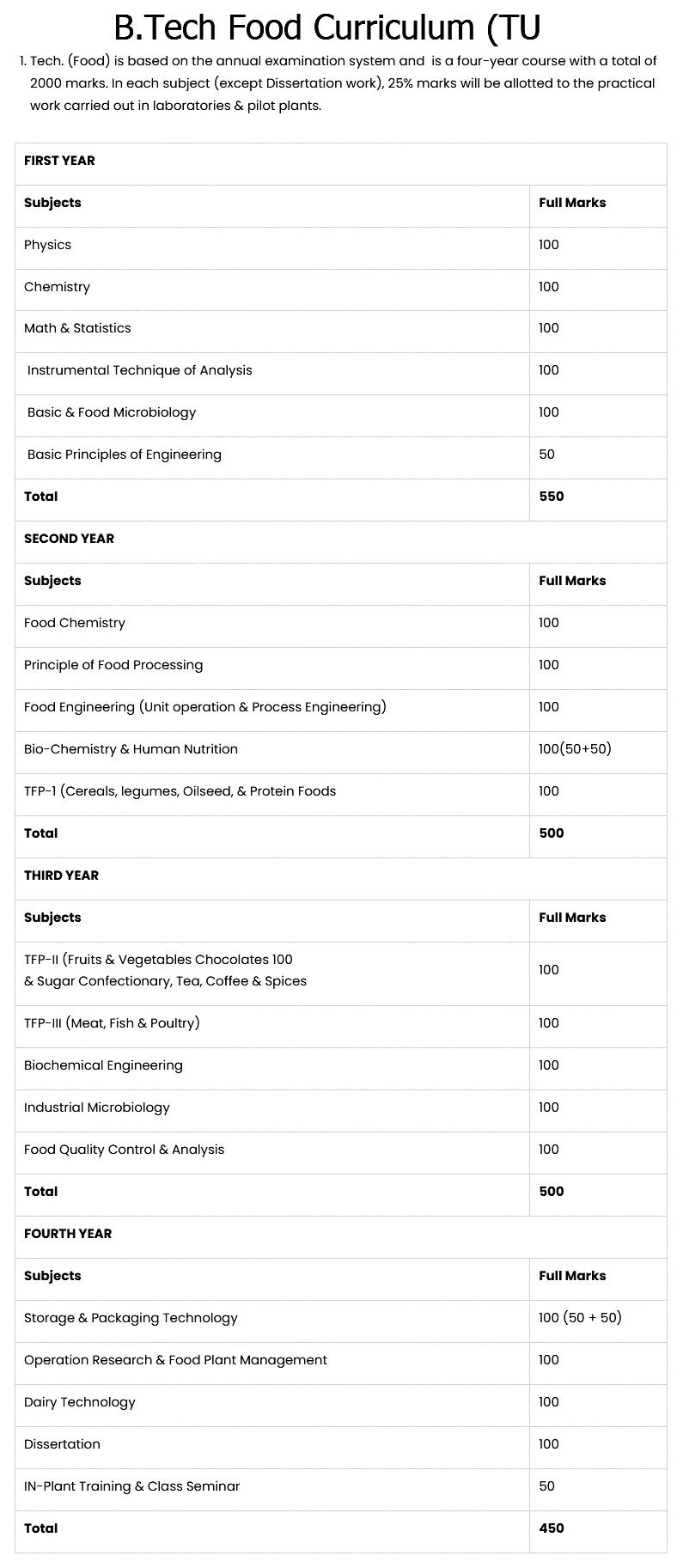
Bachelor of Food Technology (B.Tech Food) is a specialized degree that combines science, engineering, and practical industry skills to ensure food products are safe, nutritious, and of consistent quality. In Nepal, this program plays a central role in supporting the country’s growing food industry, which spans agriculture, processing, packaging, quality control, and export.
Offered mainly under Tribhuvan University’s Institute of Science and Technology (IoST) and select Purbanchal University-affiliated colleges, the program prepares graduates for diverse roles—from quality assurance to research and development—while grounding them in national and international food safety standards such as HACCP, Codex, and ISO 22000.
Why is the B.Tech (Food) Program Essential
Food safety and quality are non-negotiable in any society. Nepal’s food industry faces both opportunities and challenges, including the need for improved processing methods, stronger compliance with regulations, and value-added products for export markets. Trained food technologists fill these gaps by applying science-based approaches in manufacturing, storage, and distribution.
The program is designed to build not just technical knowledge, but also practical skills that employers expect—making graduates job-ready in both domestic and international markets.
Program Overview
-
Duration: 4 years (8 semesters)
-
Credits: Approximately 140 (combination of theory and practical)
-
Teaching Method: Semester-based with continuous internal evaluation and final exams
-
Practical Components: Laboratory sessions, industrial tours, in-plant training, dissertation
-
Governing Bodies: TU IoST, Purbanchal University, and affiliated institutions
Eligibility Requirements
Applicants need one of the following qualifications:
-
10+2 Science with Physics, Chemistry, and Biology or Mathematics
-
Proficiency Certificate Level in Food Technology or Laboratory Technology (TU-recognized)
-
A-Level in Science with Chemistry and Mathematics
-
CTEVT diploma in related fields, meeting the criteria set by the respective university
Admission Process
-
Application: Submit online through TU IoST or PU-affiliated college portals.
-
Entrance Exam: Multiple-choice questions covering physics, chemistry, biology, mathematics, and general aptitude.
-
Merit Selection: Based on entrance exam performance and prior academic records.
-
Seats: For example, the Central Campus of Technology admits 48 students annually for this program.
-
Fee: Around NPR 1,650 for the TU entrance application.
Available Seats (Under IOST – B.Tech Food Technology)
Constituent Campus:
-
Central Campus of Technology, Dharan – 48 seats
Affiliated Colleges:
-
National College of Food Technology, Kathmandu – 24 seats
-
Lalitpur Valley College – 24 seats
-
Padmashree College – 24 seats
-
GoldenGate International College – 24 seats
-
Pokhara Science & Technology Campus – 24 seats
-
Sunsari Technical College – 24 seats
Curriculum Structure

The program blends foundational sciences with specialized food technology courses.
Allied Sciences
-
Applied Physics
-
Engineering Mathematics
-
Industrial Chemistry
-
Applied Statistics
-
General Biochemistry
-
General Microbiology
-
Instrumental Techniques of Analysis
-
Basic Principles of Engineering
-
Fundamentals of Electrical Engineering
-
Computer Applications
-
Workshop Technology
-
Operations Research
-
Research Methodology
-
Food Plant Management and Entrepreneurship

Core Courses
Food Chemistry and Analysis
Studies the composition and chemical behavior of food, effects of processing, and laboratory analysis methods.
Food Microbiology
Explores microorganisms affecting food safety, spoilage, and preservation methods.
Food Engineering
Covers heat and mass transfer, equipment design, and production systems.
Principles of Food Processing and Preservation
Includes methods such as canning, freezing, dehydration, and fermentation.
Product Technologies
-
Cereals, legumes, and oilseeds technology
-
Fats and oils processing
-
Fruits, vegetables, tea, coffee, and spices processing
-
Dairy Technology I & II
-
Meat Technology I & II
-
Confectionery and snack foods
Sensory Assessment
Methods for evaluating taste, texture, aroma, and appearance.
Food Packaging and Storage
Designing packaging for safety and shelf-life; storage techniques for different food products.
Quality Control and Standards
Covers HACCP principles, Codex guidelines, GMP, and ISO 22000 food safety systems.
Research and Industrial Exposure
-
Industrial tour (7 days)
-
In-plant training (minimum 45 days)
-
Final-year dissertation based on original research
Example Course Distribution
| Category | Credits | Share of Curriculum |
|---|---|---|
| Allied Courses | 48 | 34% |
| Core Courses | 92 | 66% |
| Total | 140 | 100% |
Practical Learning and Assessment
-
Internal Assessment: 40% weight (assignments, quizzes, practical work)
-
Final Exams: 60% weight for both theory and practical
-
External Evaluation: Practical exams supervised by external examiners
-
Dissertation Defense: Conducted with both internal and external evaluators present
Colleges Offering the Program
Tribhuvan University (IoST)
-
Central Campus of Technology, Dharan
-
Nepal College of Food Science and Technology (NCFST), Kathmandu
-
Padmashree College, Tinkune, Kathmandu
-
Other TU-affiliated campuses in different provinces
Purbanchal University
-
College of Applied Food and Dairy Technology (CAFODAT), Lalitpur
Regulatory and Industry Framework
The food technology sector in Nepal operates under:
-
Food Act 1967
-
Food Regulation 1970
-
National Food Safety Policy 2019
These laws are implemented and monitored by the Department of Food Technology and Quality Control (DFTQC), which enforces quality standards, licensing, and inspections.
International Standards
Students and graduates are expected to understand and apply:
-
Codex Alimentarius – General Principles of Food Hygiene, including HACCP methodology
-
ISO 22000 – Food Safety Management Systems integrating HACCP with quality management principles
-
GMP and GHP – Good Manufacturing and Hygiene Practices
Skills Developed
-
Technical: HACCP design, ISO 22000 compliance, sensory evaluation, process optimization
-
Analytical: Data interpretation, statistical process control
-
Managerial: Production scheduling, cost control, plant operations
-
Regulatory: Familiarity with national food laws and international safety standards
Career Opportunities
Domestic Roles
-
Quality Assurance Manager
-
Production Supervisor
-
Food Safety Inspector
-
Research and Development Technologist
-
Laboratory Analyst
-
Sensory Evaluation Specialist
International Roles
-
Product Development Scientist in multinational companies
-
Compliance and Certification Consultant
-
Sensory Scientist in global food research organizations
Employment Sectors
| Sector | Typical Roles |
|---|---|
| Dairy and Beverages | QA/QC, Process Design |
| Cereal and Bakery | Product Development, Packaging |
| Meat and Poultry | Hygiene Management, Quality Control |
| Spices and Beverages | Sensory Analysis, Export Documentation |
| NGOs/INGOs (Nutrition) | Program Coordination, Monitoring, and Evaluation |
Job Market Trends
Agriculture accounts for around one-fourth of Nepal’s GDP, with food processing growing steadily. DFTQC’s recent monitoring found nearly 5% of food samples non-compliant with standards, showing a continued need for qualified food technologists in quality control and safety assurance roles.
Ideal Student Profile
-
Strong interest in science, particularly chemistry and biology
-
Attention to detail and hygiene
-
Comfort with laboratory work and data analysis
-
Problem-solving skills applied to real-world production scenarios
Choosing the Right College
-
Verify official affiliation and accreditation
-
Inspect laboratory and pilot plant facilities
-
Look for active partnerships with food industries for internships
-
Review faculty experience and research output
-
Check for strong safety and hygiene protocols on campus
Costs and Scholarships
-
Entrance Fee: Approximately NPR 1,650 for TU’s entrance application
-
Scholarships: Merit-based and category-based options under IoST guidelines
-
Additional costs may include lab coats, field visit expenses, and dissertation materials
Study Tips for Success
-
Apply HACCP principles to small-scale projects
-
Use statistical tools to monitor and control product quality
-
Gain industry exposure early through visits and internships
-
Build strong communication skills for reporting and documentation
Key Takeaways
-
The program offers a mix of science, engineering, and regulatory knowledge
-
Strong job prospects in both domestic and international markets
-
Practical training and compliance skills are major advantages
-
Selecting the right institution impacts learning quality and career readiness
Conclusion
Bachelor of Food Technology in Nepal equips students with the skills and knowledge to make a measurable impact on the food industry. With structured academic training, practical exposure, and an understanding of both local regulations and global standards, graduates are prepared to contribute to safer, higher-quality food systems. This degree not only opens career doors but also addresses a national need for skilled professionals in food safety, processing, and innovation.
FAQs
1. Which universities in Nepal offer this program?
Tribhuvan University and Purbanchal University offer it through constituent and affiliated colleges.
2. How long is the degree program?
It is a four-year course divided into eight semesters.
3. What practical training is included?
Industrial tours, in-plant training, and a final-year dissertation.
4. Are diploma holders eligible?
Yes, if they meet the criteria set by TU or PU.
5. What roles can graduates work in abroad?
Positions include product development, food safety compliance, and sensory research in international companies and institutes.
Study in Nepal

